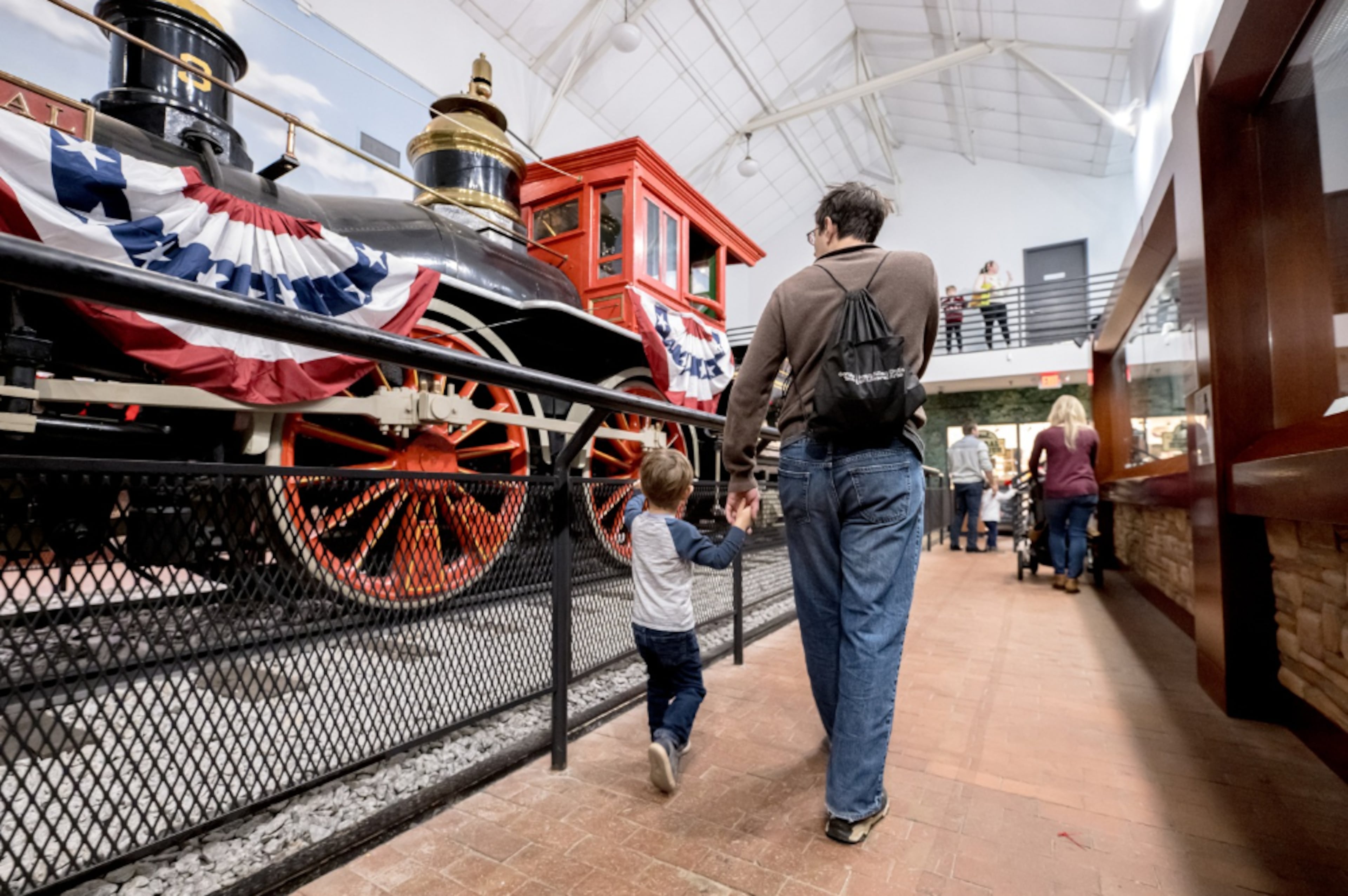The lost art of repair

It’s broken or outdated. You really want to throw it out, or maybe recycle it. But why not repair it?
Back in the olden days, people took their televisions to be repaired. They went to the cobbler to make shoes last longer and to a seamstress to repair the tear in a coat. Consumers expected a repair shop to add years to appliances, cars and clothes.
Ryan Embry, owner of Classic Shoe & Leather Service in Buckhead, is a third-generation cobbler and leathersmith who brings shoes, purses, horse saddles and leather clothes back to life. He also repairs clothing for historical re-enactors, does custom work and makes costumes for movies. For him, it’s all about surviving. “If we continue to move more into a disposal society that lots of companies want you to live in, then the talent [to do repairs] will be lost. The key is to know how to do it and get paid. Part of that is education. People don’t know that things can be fixed.”

There still are places in Atlanta, many started decades ago, where you can go to get something repaired. They may not be as numerous as in years past, but you’ll find Wings Camera and Digital, a family-owned camera shop since 1912; Finest’s Reweavers, which has repaired moth damage since 1939; and SunShine Jewelry in Decatur, which has fixed jewelry for more than 25 years.
In some fields, the trades are growing. Consumers are keeping their cars longer, prompting a surge in the need for mechanics. “Furniture restoration, upholstering and carpentry skills are on the rise as people are remodeling their homes more,” said Brian Goebel, managing director of the Roberto C. Goizueta Business & Society Institute. In addition, Goebel said, companies such as Patagonia are committed to sustainability and provide repairs for customers.
Manufacturers rarely make items to last a lifetime, preferring a “planned obsolescence”; plus, they are increasingly not making replacement parts, forcing the need to buy new.
Even if parts were available, skilled artisans often are not. Years ago schools offered shop classes that taught students how to fix things, and it was a source of pride, but today fewer schools teach these trades. According to Michael Bowers, whose grandfather started Bowers Watch & Clock Repair in 1943, only a handful of schools in the country teach watch repair. There are apprenticeships with companies, such as Rolex or Timex, but students only learn how to fix that brand.
“It’s a dying art and we’re not supported by the industry,” he said. “They aren’t making parts. People today want the easy way out. It’s easier to buy new.”

Bowers, whose shop is on Cheshire Bridge Road, started when he was 3 years old taking apart a cuckoo clock. His father and grandfather then taught him how to put it back together. “I worked on smaller tasks until I got better and better. Our hands are full doing repairs now. I never know what’s coming in or what needs to be fixed. Returning it to running order is very satisfactory.”
The store’s bread and butter is restoring family heirlooms or collector pieces, especially grandfather clocks. The wristwatch is back in style and millennials are bringing long-forgotten watches to get repaired. “Young men are wearing watches as a status symbol, a fashion accessory. Women are wearing men’s vintage watches. I don’t see me running out of work.”
Most craftsmen learn through apprenticeships, many from family. Embry’s uncle bought a shoe shop and his father, Embry’s grandfather, joined the business and learned the trade. Then Embry’s father joined, as did a variety of cousins and uncles. At one time, he estimates the family had about a dozen leather and cobbler shops across the Southeast. Today, there are only a couple.
However, Embry’s nephew is working at the shop — a fourth generation. “He chose to come here. He worked as a child, sweeping up and polishing shoes. He then decided it was a hard job and didn’t want to work for his dad. He went out into the real world and then asked if he could come back,” he said.
He has talked with Kennesaw State University about teaching a class and has offered five-year apprenticeship programs; so far about eight apprentices have graduated. “It seems long but, just with shoes, each season brings a different type of lesson or job. We spend a lot of time on how to do colors so you get the right match.”
Not everyone starts as an apprentice; many turn a passion into a profession. As a child Neil Newcomb lived near a world-renowned musical instrument tech and he would watch him work. He went on to get a performance degree and his saxophone professor was also a repair tech. Over the years he worked at music stores and as a musician, finding additional income repairing instruments for “kids who destroyed things.”
Today he owns Atlanta ProWinds in Stone Mountain where he and five others repair instruments for everyone from the “kids who drop their flute and dent it, to members of the Atlanta Symphony Orchestra. We have national touring artists coming in and we work on a lot of heirloom things.”
There are several instrument repair shops in the city but “only four I would trust,” he said. There is a two-year associate degree in instrument repair but, similar to clock repair, not many schools offer it, he said.
“It’s a great job. I get to fix things and hang out with things that pertain to my degree. Afterward I get to play them to see how good they play. I can make the instrument be the best it can be.”

Andrew Huot, owner of Big River Bindery, has repaired books for eight years. Bibles are his number one request. “It’s a mix of art and science. You need to know how things work, make it aesthetically pleasing and know enough engineering to make sure the pages break properly.”
There is an increased interest in preserving books and he recently hired his first employee. During art school, he repaired Bibles for friends and then took book binding classes. He also specializes in restoring books passed down through the generations as well as creating a “fancy” look for someone who wrote a family history or thesis.
“There’s a renewed interest,” Huot said. “People started cleaning during COVID and found things that should be taken care of. People are finding me.”

Linda Blase has repaired and restored dolls for 58 years. “I ended up in restoration as a fluke. I could do this at home.”
At Atlanta Doll Clinic in Snellville, she can put an arm back on a teddy bear, restore antique dolls, re-wire a dollhouse and fix mechanical toys. “The sky’s the limit. There are emotional stories behind all this stuff. The dolls and stuffed animals have names and I have to be aware of that history. I’m an artist, problem solver and out-of-the-box thinker,” she said.
“I’m making people happy; you’re doing something nice for people.”
WHERE TO FIND THEM
Big River Bindery. 10 a.m.-4 p.m. Monday, Wednesday, and Friday. 6500 McDonough Drive NW, C4, Norcross. 404-831-3849, bigriverbindery.com.
Classic Shoe & Leather Service. 10 a.m.-7 p.m. Thursday- Friday; 10 a.m.-5 p.m. Saturday. 3759 Roswell Road, Atlanta. 404-949-9844.
Atlanta Doll Clinic. 9 a.m.-7 p.m. Monday-Friday; 9 a.m.-6 p.m. Saturday. 3671 Erdly Lane, Snellville. 770-978-0510, atlantadollclinic.com.
Atlanta ProWinds. 9 a.m.-6 p.m. Monday-Thursday; 9 a.m.-4 p.m. Friday-Saturday. 4259 Kings Troop Road, Stone Mountain. 770-715-1355, atlantaprowinds.com.
Bowers Watch & Clock Repair. 10 a.m.-2 p.m. Wednesday-Saturday. 2441 Cheshire Bridge Road, Unit 120. 404-327-7850, bowerswatchandclockrepair.com.

